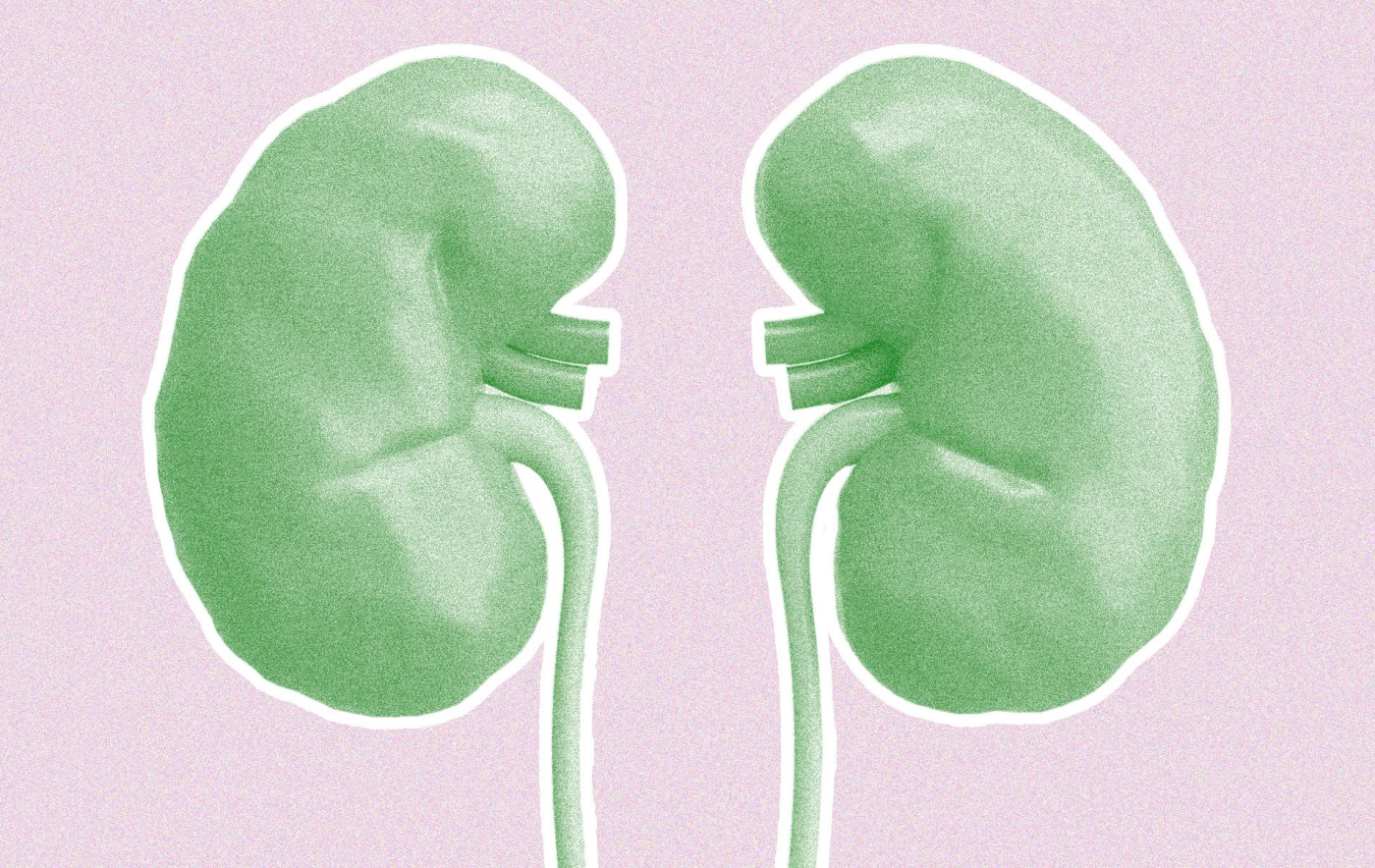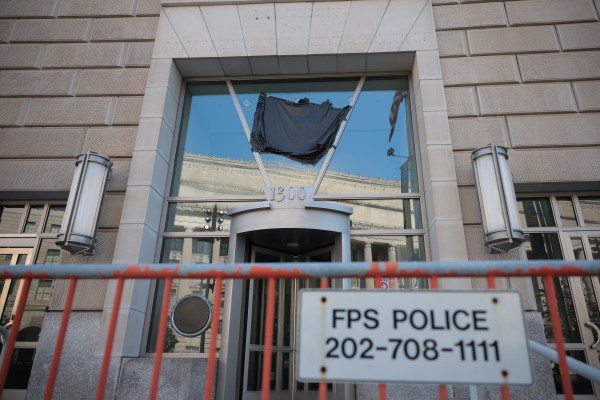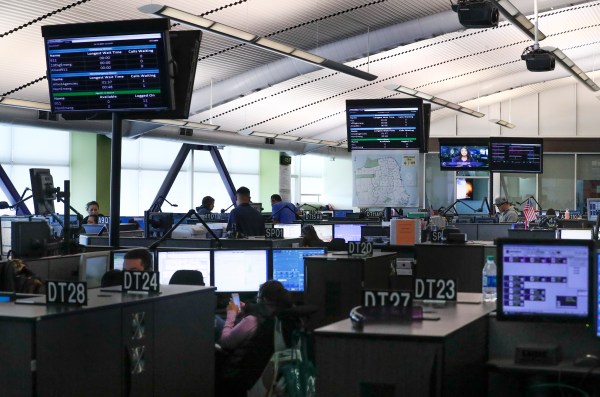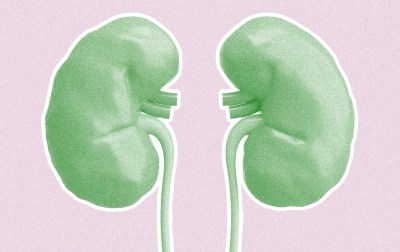Turn any article into a podcast. Upgrade now to start listening.
Premium Members can share articles with friends & family to bypass the paywall.
The first thing I said when they finished cutting out my kidney was, “Oh god, it hurts like a m*****f*****.”
Don’t worry. I wasn’t the victim of a back-alley scheme to steal organs. Six years ago, I donated my kidney to a stranger on the kidney waiting list, in what’s known as an altruistic or non-directed donation. I did get some pain medication pretty quickly after my … emphatic declaration, I recovered over the next two weeks, and I’ve been perfectly healthy since.
Despite donors like me, end-stage renal disease (ESRD) is still a huge problem in America. It’s a silent epidemic that kills more people than car crashes, breast cancer, homicide or suicide. There is no cure for ESRD—you either get a transplanted kidney or live the rest of your life on dialysis. As of September, there were almost 90,000 people on the kidney waiting list.
The worst part is that, for so many, these deaths are completely preventable.
While there are some ESRD patients who are too old for surgery or too sick to be helped, the majority of ESRD patients can easily extend their lifespan with a donated kidney. Our best estimates show that tens of thousands of people die every year, when they could have been saved by a donated kidney.
We simply don’t have enough kidneys, and people are dying by the tens of thousands because of it. We do, however, have another way to address the problem. We can pay people who choose to donate.
Life with ESRD can be miserable. Kidneys filter your blood, and when they stop working, your primary option is dialysis, a process that only replicates about 10 percent of normal kidney function. Because of that, patients have to undergo dialysis three to four times a week, three to four hours at a time. It’s an exhausting, debilitating procedure that drains all your energy and leaves you a shell of your normal self. As one patient with ESRD put it: “Today, I feel totally wiped-out. And tomorrow, I’ve got another treatment. I’m beginning to worry: How can I work when I have treatment one day and feel bad the next? Will this get any better? Why has God chosen this for me?"
It’s hard to maintain a job, personal relationships, hobbies, or a normal life while on dialysis. Survival rates on dialysis are also grim: Around 20 percent of patients die within a year, and less than half of patients will survive five years.
I chose to donate because, for the price of a couple of bad weeks, I could give someone decades of extra life. That’s a choice I would make every time. The surgery itself is very safe. For donors who don’t have high blood pressure, the risk of dying during surgery is around 1 in 10,000—for comparison, that means it’s less than half the risk of dying from sunstroke. There’s also not much risk in the long run. Kidney donors do see a slightly increased risk for ESRD in the future, but that risk only increases from 0.3 percent to 0.9 percent—so 99 percent of donors still won’t develop ESRD. The financial costs of surgery are covered by Medicare. In short, outside of a short hospital visit and a couple of weeks of fatigue, there’s not much downside. My life after donating is exactly the same as my life before donating.
The systemic problem is that we don’t have enough living donors, and deceased organ donations aren’t enough to cover the gap.
Organ transplants in the United States are overseen by a complicated web of governmental and non-governmental organizations. The United Network for Organ Sharing operates the Organ Procurement and Transplantation Network, overseen by the Department of Health and Human Services. Dozens of regional organ procurement organizations (OPOs) are the on-the-ground non-profit groups in various cities and states responsible for recovering organs from deceased donors. For living donors, there isn’t a single national registry for kidneys—instead, there are three main national registries but also hundreds of smaller registries specific to individual transplant centers.
This system is badly in need of reform. Some OPOs have been so badly mismanaged that Congress had to hold hearings to investigate, and the entire system itself is needlessly complex. But even with reform, there simply aren’t enough kidneys to go around. Deceased organ donation can’t provide enough usable kidneys because donation requires a person to die in a very specific way: Patients usually need to be brain dead but still on life support, and otherwise in great health without infection, cancer, disease, or advanced age. Only 3 out of every 1,000 people die in a way that allows for deceased organ donation.
We need living donors to fill the gap. And we know how to increase the number of living donors: by paying them.
There’s strong evidence that paying living donors would increase donations. While no country currently provides direct cash payments to donors, many countries have implemented reimbursement programs to help offset the indirect costs of donating, such as travel costs, child care costs, lost wages, etc. These costs act as a barrier for donations—many people can’t afford a few weeks off work, or to pay increased costs for child care and food delivery while they’re recovering. The countries that implement these programs—such as Australia, Germany, and Singapore—have seen a 16 percent increase in living donations after implementing them. Israel has one of the more generous programs: The government pays a month’s salary and offers subsidized health insurance for kidney donors. And in Israel, half of kidney donations are now from living donors, as opposed to only 15 percent in the United States.
We have an opportunity now to advocate for paying donors. The End Kidney Deaths Act (EKDA), originally introduced last year, was reintroduced to the House last week by Republican Rep. Nicole Malliotakis of New York and Democratic Rep. Josh Harder of California. It’s a bipartisan bill that would offer a $10,000 refundable tax credit for five years ($50,000 in total) to those who donate kidneys to strangers. These payments wouldn’t even be a fiscal burden—because Medicare covers all dialysis patients and dialysis is so expensive, this bill would actually save the government money by moving patients off dialysis faster (dialysis by itself makes up 1 percent of all federal spending!). The EKDA would be the largest, most significant program in history toward promoting kidney donation.
I know that for some folks, paying for organs seems morally questionable. Perhaps it feels like a violation of the sacred nature of the human body. Or perhaps paying someone to do a good act seems like it inherently violates the altruistic nature of that act. Some folks might have concerns that this will lead to the commoditization of organs or will be used to exploit poor people. I understand and I sympathize with those concerns.
But our donation system has strong safeguards against abuse. When I donated, I had to go through a rigorous process to make sure I was of sound mind. I met with a hospital-appointed psychologist several times to demonstrate that I wasn’t mentally ill. I met with a social worker several times to make sure I wasn’t being unduly influenced or pressured in any way. I had a “donor advocate” who helped me with any concerns or questions I had. I was medically tested over and over to make sure I was healthy enough to donate. Over the course of six months, I had more than a dozen meetings with doctors, administrators, and other parties to make sure that every part of the donation was done by the book. They don’t just let you run in and donate—the system today already has strong protections against malfeasance. Put another way, the End Kidney Deaths Act wouldn’t permit an unregulated free market. Private compensation would still be illegal, as the government would be paying for kidneys and supervising the entire process.
As humans, we’re often more susceptible to a single heart-rending anecdote than cold statistical reality. It’s easy to imagine a hypothetical person in a distressed financial position who’s influenced by the money to donate and then later regrets it. To that, I would offer two rebuttals: First, I would point out that the overwhelming majority of kidney donors do not regret their choice—according to the University of Pennsylvania, 99 percent of donors would recommend living donation. And second, I would introduce them to Brian.
Brian (a pseudonym) was my recipient. Brian was only 25 years old. I didn’t know Brian at all when I donated, but we got in touch a few months after the surgery. I learned that he’d had kidney issues since he was a small child because of genetic issues, and that he’d been struggling for years with failing kidneys. The sad reality is that without a kidney, Brian was almost certainly going to die young. His parents would have had to bury their child far before his time.
Now, Brian is doing great. He has decades of life to look forward to. He’ll get to spend more time at family game nights and have more nights at the brewery with friends. Maybe he’ll fall in love. Maybe he’ll have kids. He’ll get to have all the adventures and laughter and heartbreak and joy that make up a human life. Brian is a real person, and I’d ask those opposed to organ donor payments to imagine his life and death just as vividly as they might imagine worst-case scenarios. With respect to their objections, I do not believe they outweigh the tens of thousands of Brians in need of kidneys every year.
The End Kidney Deaths Act would be an enormous step forward, and we should pass it. Too many families have lost too many loved ones to kidney disease, and it doesn’t have to be that way. We know how to fix the problem. The only thing that we need now is the courage to act.







Please note that we at The Dispatch hold ourselves, our work, and our commenters to a higher standard than other places on the internet. We welcome comments that foster genuine debate or discussion—including comments critical of us or our work—but responses that include ad hominem attacks on fellow Dispatch members or are intended to stoke fear and anger may be moderated.
With your membership, you only have the ability to comment on The Morning Dispatch articles. Consider upgrading to join the conversation everywhere.